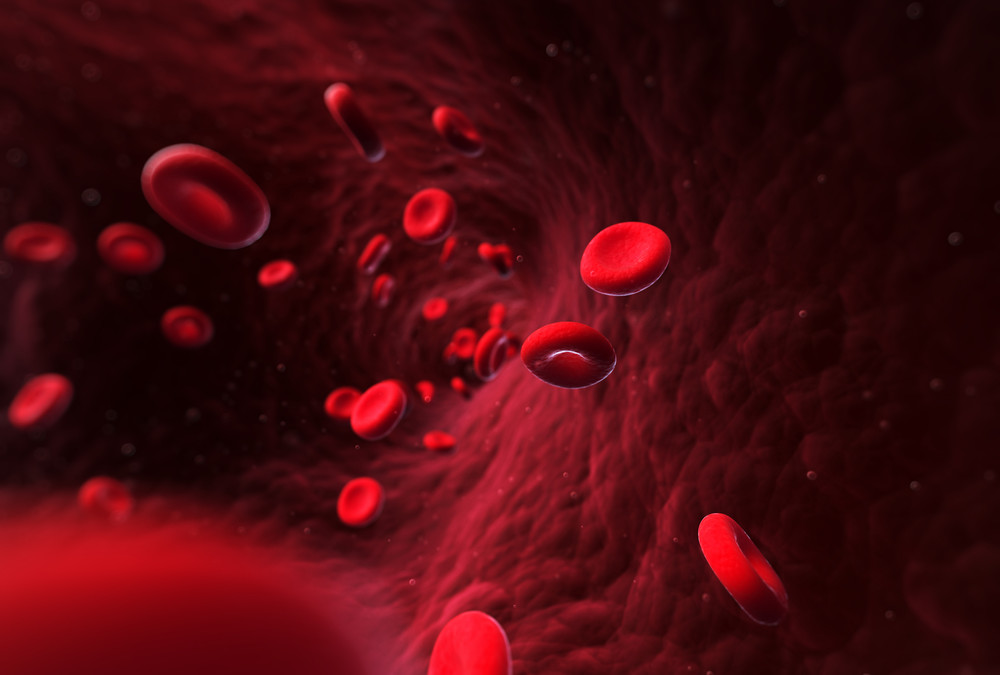A lot of people in consults may wonder what the hell is Ferritin? And why does this guy keep chattering about it while spending 10 minutes drawing diagrams about iron.
Well, we need iron to make a ton of enzymes, all neurotransmitters, and hemoglobin.
Seventy five percent of iron is delivered to the bone marrow to make red blood cells so that these cells which make up 25% of all the cells in the human body can carry around oxygen and all cells (other than RBCs) need oxygen to make energy.
Important? Ummm Yes…
Thus, some of your female athletes who are scared of a consuming grass-fed tenderloin may be living anaerobic. This doesn’t sounds like a recipe for success no matter what your interval protocol is.
Women bleed every month until menopause and require about 50% more iron than men.
But this is not the environment we live in. Women tend to be more apt to be vegetarians and for some reason women eating medium rare steaks tends to be culturally frowned upon. And spinach is not a legitimate source of iron – it is like 1% bioavailable. Don’t believe me? Search pubmed. “The data show fresh spinach is a poor source of iron.” Rutzke et al.
So women better be ingesting iron from red meat (or supplements) and are hopefully losing it every month, but not excessively. The other side is they may not be absorbing iron. You need stomach acid and sufficient vitamin C to absorb iron. That is why we will generally use combination supplements that contain all the necessary ingredients to absorb iron effectively and then we test to make sure it is working but not too much because we don’t want them filling up all the vials of blood.
Conversely, men tend to crush red meat. Some of us would bathe in grass-fed ribeyes if given the chance. The problem is men shouldn’t be losing iron every month, nor should we be losing it through an ulcer, GI bleed, or open wound. Thus, we don’t need as much as women and we tend to over-consume iron. And just like that 2001 Isuzu Rodeo, too much iron in the body is inflammatory and will oxidize AKA rust. Thus, our body has checks and balances on this system.
Hepcidin is one of those checks. Hepcidin blocks ferroportin (an iron transporter) – thus stopping the release of iron into circulation and lowering plasma iron, but raising ferritin the storage form of iron. Hepcidin also down-regulates the absorption of iron from the small intestine.
Now here is where it gets cool, really cool. Interleukin 6 (IL-6) and lipopolysaccharides (LPS) up-regulate Hepcidin. Thus, inflammatory foods, dysbiosis, and/or a GI infection could all potentially increase ferritin as a safety mechanism and consequently elevated ferritin is termed an acute phase reactant. We may also see iron overload in blood work because of a mutated HFE Protein which will result in a disease known as hemochromatosis. This gene mutation cuts off the functionality of Hepcidin and thus our body will absorb too much iron and put too much into circulation. If you have genetic testing you can generally dig into your raw data for these SNPs. It is estimated that one million people in the US have this genetic disease, which would be managed by…you guessed it – giving blood.
Now to put this all together, you need iron to make 5-HTP the precursor for serotonin. One in six Americans have diagnosed depression and there are more prescriptions written for SSRIs in the US than people to take them. But, 80-90% of serotonin is manufactured in the gut and around 70% of our immune system is located in the GI tract. So iron deficiency, GI distress, and immune activation could be an underlying cause of depression. But, wait I thought depression was a Zoloft deficiency.
On the flip side too much iron due to an inflammation and immune activation in the GI tract could also be an underlying cause of depression because remember what starts in the GI tract never stays local and a gut on fire is a brain on fire.
Yet, everything you just read is a bottom-up investigation. You could also have a top down problem in which your vagal tone is shut down and you can’t turn on digestion in which case you can’t absorb iron because you are not producing and secreting enough stomach acid. Well hello, iron, brain, GI loop!
A CBC costs 4.95. A full iron panel costs 14.95. Twenty bucks and some foundational principles and you may learn why you fall asleep on the eliptical or that maybe you shouldn’t be housing cheeseburgers on the regular.






Recent Comments